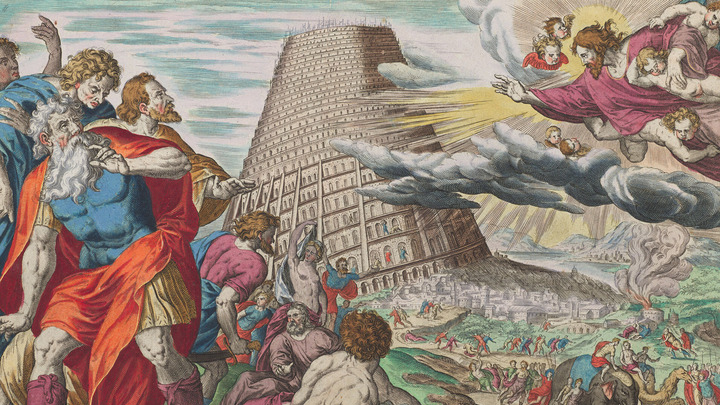Languages aren’t real—at least, not in the way we’re taught they are. From Swiss German to Sanskrit, our neat linguistic categories are less about grammar and vocabulary than power, identity and social engineering. Vuk Vukotić, a theorist of ideologies of language, dismantles the myths of both linguistic realism and relativism, revealing how distinct languages are not natural entities but rather artificial tools—often monopolized by elites—for sorting people into tribes, nations and other social groups. Instead of speaking about languages as distinct systems, we should see language as a fluid, amorphous practice in which we all participate.
Languages simply exist, don’t they? There is clearly an English and a German and a Thai language. This might seem an obvious fact in the modern world. Relativists—those who support the Sapir-Whorf linguistic relativity thesis—believe not only that languages are real and exist, but that they somehow express the worldview of their speakers. On this view, languages construct our realities—so this is a non-realist view of the relationship between language and objective reality. Conversely, generativist linguists would claim that there is only “language” (without the indefinite article)—a universally distributed ability to communicate in verbal symbols—while what we may perceive as distinct individual “languages” are merely expressive variations of those “deep structures” of language. On this view, language is a transparent medium for referring to objective reality—so this is a realist view of the relationship between language and reality.
___
An imagined linguistic entity—be it a language, dialect, patois or whatever—is a way of what I call “social doing.”
___
Both perspectives have valid points. Relativists have the merit of providing rich descriptions of individual languages and their idiosyncrasies, showing that not everything about language is universal. However, they often stumble in defining languages when working with geographically close and related speech. Are the speech patterns of two neighbouring ethnic groups languages, or mere dialects? For example, are Swiss German, Bavarian and Low German all the same language or different ones? How much difference should there be for something to be considered a different language? There is, to this day, no consensus on these questions.
SUGGESTED VIEWING Language wars With Babette Babich, Graham Priest, Sandra Laugier, Bjørn Ekeberg
Moreover—and unfortunately for the relativists—the situation where one has to make such decisions is more of a rule than an exception. In Europe, we have long stretches of dialectal continua, which ignore national borders: the Romance continuum stretches between Portugal, Spain, France and Italy; the North Slavic continuum over Russia, Poland, Czechia and Slovakia; the South Slavic continuum from Slovenia to Bulgaria, etc. This also applies to much of the rest of the world.
Proponents of universal grammar would be quick to point out that politics, rather than nature, makes languages. A handy phrase they’d often use goes, “A language is a dialect with an army and navy” (popularized, although not originated, by the scholar of Yiddish Max Weinreich). This witticism illustrates a key point: the language of the Italian nation is actually a specific type of Florentine, Spanish is Castilian, German is the Saxon-styled language of Luther’s Bible, and so on. In this light, myriad other linguistic entities are relegated to the status of sub-languages (dialects), such as Sicilian, Aragonese or Bavarian. This promotion of an official language was important for nation-building: a single language for a modern nation is a practical—and in some cases a spiritual—necessity.






















Join the conversation